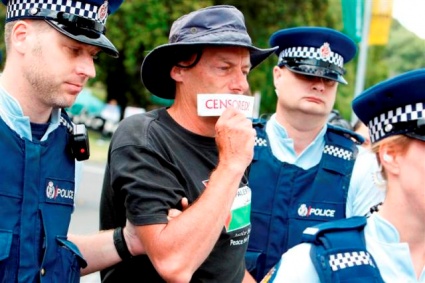July 13, 2011
Antisemitism in Canada?

Over a year late, the so-called Canadian Parliamentary Coalition to Combat Antisemitism, which has no official status, has finally issued its report. It really should not have bothered. It is so full of holes that it does not hold water.
Early on it discusses definitions of antisemitism. It quotes the European Union Monitoring Centre on Racism and Xenophobia: “Antisemitism is a certain perception of Jews, which may be expressed as hatred toward Jews. Rhetorical and physical manifestations of antisemitism are directed toward Jewish or non-Jewish individuals and/or their property, toward Jewish community institutions and religious facilities.”
While the definition does not clearly distinguish between prejudice and discrimination, lumping them together, it is not too bad. But then it adds: “In addition, such manifestations could also target the state of Israel, conceived as a Jewish collectivity.” Therein lies the problem, tying the concept of antisemitism to opposition to Israel and/or its behavior.
In an interview with The Canadian Charger Dr. Diana Ralph, of Independent Jewish Voices, remarks, “The report cites as antisemitic many examples of legitimate protests against discriminatory and violent Israeli policies. It calls on universities, legislators, and immigration agencies to implement dangerous restrictions on those who criticize Israel.”
She also attacks the Coalition’s way of gathering and evaluating evidence: “The CPCCA hearings were highly biased: 45% of its witnesses represented pro-Israel lobby groups, many of them not even from Canada. The CPCCA also deliberately excluded many witnesses who would have disagreed with the result it was seeking–such as Independent Jewish Voices–Canada, Seriously Free Speech, and Canadians for Justice and Peace in the Middle East. Most of the other Canadian witnesses, including police spokespeople and university administrators did not support the CPCCA’s allegations that anti-Semitism is rising or that Canada needs to criminalize dissent.”
For his part, Dr. Michael Keefer, author of Antisemitism Real and Imagined, declares that the report is “a McCarthyist diatribe that exaggerates the actuality of antisemitism in this country, misrepresents the evidence of the Coalition’s own inquiry, makes scurrilous insinuations about human rights activists and NGO’s, and draws inflammatory conclusions from discredited ‘experts’.”
MP Irwin Cotler backed out of a CBC debate with Keefer at the time of the Coalition’s report production. However, he told The Canadian Charger that he would be prepared to debate him after the report was released. Well, now is the time, Mr. Cotler.
The Monitoring Centre cites examples of antisemitism: “denying the Jewish people their right to self-determination” and requiring of Israel “a behavior not expected or demanded of any other democratic nation.”
Let’s take a look at these propositions. Who has a right to self-determination in Israel/Palestine–Jews living in Canada? And who determines what is to be “legitimate” criticism of Israel? Democratic nations should be open to criticism on any ground. That is what democracy entails.
The Inter-parliamentary Coalition for Combatting Antisemitism, of which the Canadian Coalition is a member, includes in its concept of antisemitism denying Israel’s “right to exist or seeking its destruction.”
One Israeli Apartheid Week activist remarked that Israel does not have a right to exist. “It has a right to coexist.” Is that antisemitic? More basically, what is the underlying raison d’être for Israel? Is its existence as a homeland for Jews less worthy than that for Yugoslavia, which strove to be a coalition of ethnicities and homelands? Slobodan Milosevic seized the presidency, resulting in its destruction. Does Yugoslavia have a right to exist?
Showing its bias, the Coalition report refers to “the disputed territory of Judea and Samaria/West Bank, Gaza and the Golan Heights.” These are usually known as occupied territories. Other countries have boundaries. What are Israel’s boundaries?
The report spends considerable time on antisemitism in Canadian universities. As an example, it cites Israeli Apartheid Week. Unfortunately, there have been gallons of ink spilled in the media about the week, but very little actual reporting on what actually occurs at these events. Is what the speakers say “legitimate”? For example, at these events one can hear about the discrimination against Palestinian communities in Israel in terms of government funding, about anti-Palestinian prejudice, about ongoing thefts of land in the occupied territories. Illegitimate? Antisemitic? Boycotting Apartheid South African institutions was not seen as racist. Regardless of whether one supports or opposes such boycotts of Israel, why are they deemed necessarily antisemitic?
Attention is given by the Coalition to an incident at York University where Jews are portrayed as victims of a pro-Palestinian mob. Dr. Michael Keefer’s book reports that “the claim of a pro-Israel demonstrator that his side was subjected to intimidation is, if anything, an inversion of what the video cameras show.”
More generally, the report agrees with Dr. Sheldon Levy of Ryerson and Dr. Fred Lowry of Concordia. Lowry found “that by and large . . . most Canadian universities are safe,” and Levy commented that so far as intimidation is concerned, “for 99% or some very large number of people there are not issues.” And the authors of the report say, “We agree.” So what’s the big deal?








